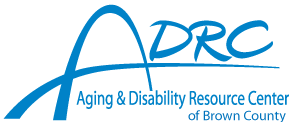April 16, 2023 is National Healthcare Decisions Day (NHDD). Since 2008, the purpose of NHDD is to educate and empower people about the importance of advance care planning.
There are times that decisions about medical treatments need to be made when a person is too sick or unable to express their own wishes. A serious illness can cloud our judgment or make it difficult to make decisions for ourselves. The inability to make these decisions could come after surgery, during a terminal illness, coma, an accident, or a dementia diagnosis.
When this happens, as caregivers you may be asked to work with doctors to make decisions for your loved one as to what they would want if they could speak for themselves. Making medical decisions for someone can be difficult. Family members may disagree with one another or with the doctor. They may not understand your loved one’s condition or they might not be sure what the person would want.
There are two documents that are considered key when planning your advance directives:
Advance Directives or Power of Attorney are the most common names for the first document.
No matter which name is used, this document allows people to choose someone to make decisions for them if, or when, they are unable to do so themselves. This person is referred to as a Primary Agent or Health Care Proxy. This document makes it easier for family and friends to make decisions when the person falls ill and can no longer make these decisions on their own. In addition, when the wishes outlined in the document have been discussed between the person and the primary agent or health care proxy, this document helps to represent the patient’s interest when discussing health care decisions with healthcare providers while minimizing anxiety and stress associated with emotionally difficult decisions.
The second document to consider as part of the Advance Directives planning would be a Living Will.
A Living Will is a legal document that allows people to state what they would want done medically in case of a serious or terminal illness.
Completing these documents will help you accomplish two goals: to think about planning for future medical decisions and to discuss personal values and treatment preferences with family, friends, and healthcare providers.
When these documents are shared with the person chosen as the primary agent/health care proxy and the medical team, they help healthcare providers recommend treatments and future medical decisions that match the person’s wishes.
If these documents aren’t already in place and you’d like to complete them, talk to your healthcare provider for the form they use. ADRC also has information at
www.adrcofbrowncounty.org/acp as well as a monthly presentation, Advance Directives for Healthcare and Beyond.
Please note, while the focus of this article has been caregivers and those they care for, anyone over the age of 18 should have these documents in place.




